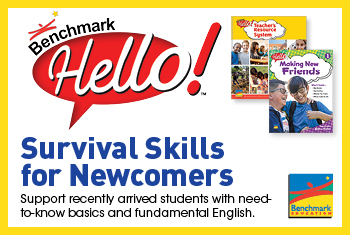Defying Labels at Tables
By Joyce Farr
 In the process of updating the earlier online issues of Voices, this article by a former NJTESOL/NJBE Executive Board member stood out. Joyce Farr confronted racism and identity as she participated in the Asian Pacific Islander Caucus (APIC) at NEA’s Minority and Women’s Leadership Training Conference.
In the process of updating the earlier online issues of Voices, this article by a former NJTESOL/NJBE Executive Board member stood out. Joyce Farr confronted racism and identity as she participated in the Asian Pacific Islander Caucus (APIC) at NEA’s Minority and Women’s Leadership Training Conference.
She had not previously questioned her identity “until the young Asian unionist, who unwittingly saw in my skin-tone and physical attributes, a kinship, and then the others, began a series of questioning that forced me to question, defend, and clarify my nebulous self-identification.” This prompted her to ask, “are APIs considered people of color?”
Here is some of what she wrote.
The desire for understanding and neat categories feels comfortable and is perhaps comforting for many people, unless you, like me, and the various individuals of the API Caucus, have to confront not only the black and white lines of race relations, racism and inherent stereotyping, but the gray, hazy spaces. We, the almost invisible minority, dismissively labeled the model minority, cast as success stories, the intention of which has been simply to drive a wedge between us and other minority groups, struggling to find inclusive spaces, dialogue spaces and tables that are traditionally black, or brown, or white. Just as I couldn’t, and eventually over time, elected not to identify completely with the culture of my birth when I still lived in the country of my birth, I subconsciously allowed the ambiguity to persist in my adopted country. Yes, perhaps my union sister was right, the United States afforded me the opportunity to reinvent myself and to cross borders into a blended sense of self. After all, it is here that I’ve found my metaphysical home, and in spaces scarred by intersections of systemic and interrelated forms of discrimination, I have been awakened.
Later that morning, after the API Caucus meeting, at the Social Justice session, a young Millennials rant rang in my head as I realized the impact of boxing individuals in. She, this pre-service educator, shared at our table how she was not “black enough” for her own people because she was raised in a different social class, in a different neighborhood than her peers. It resonated with me, as I recalled my own question to my dinner companions, “Why isn’t it enough to identify as a human being?” and more painfully, “Why am I not enough?”
Pigeonholes invariably diminish the individual. What is the point of “box-checking” individuals to fit the census definitions of race when the benefit of seeking and harnessing our commonality outweighs those categories? Stratification is so widespread and insidious that it feels for me, like I had escaped the frying pan and landed in the fire when I came to this country. The point I am making, or tried to make that evening, is that I don’t have to be black or brown to identify with the struggle that is basically a human struggle against injustice and oppression. The ancillary issue of an individual’s self-identity undercuts the central issue of human and civil rights. When we commit to social justice and our inalienable rights, as educators and advocates, our lens must not be colored by our own personal narratives alone but the common struggle of us all. As an ESL educator, a woman of color, a minority amongst minorities, teaching in a classroom filled with language minority and culturally diverse students, US-born and immigrant alike, this issue of social justice lies at the forefront of my practice and activism.
If ever our goal as a nation is the undoing of racism, the unshackling of those “manacles of segregation and the chains of discrimination” enshrined in Dr. King’s speech, then, no matter how fraught with rocky steps and missteps the road toward redemption is, it surely must begin with admission of the sins of the past, open acknowledgement of a clear and present threat, and a recommitment to a future where the dream that all may “sit down together at the table of brotherhood” is realized.
Joyce Farr, 2018 NJTESOL/NJBE Representative-at-Large
Reprinted with permission – Author’s note: Thank you for reminding me of the struggle to which I have since reconciled myself. It was an enlightening experience and I appreciate the growth I made. I hope it speaks to those who are or have been on a similar path and who can find solidarity in its message.
You can read the full article here.
 Carol Higho describes five practical and immediately usable means for increasing students’ cultural competence by emphasizing similarities along with differences and rejecting stereotypes.
Carol Higho describes five practical and immediately usable means for increasing students’ cultural competence by emphasizing similarities along with differences and rejecting stereotypes.

 In the process of updating the earlier online issues of Voices, this article by a former NJTESOL/NJBE Executive Board member stood out. Joyce Farr confronted racism and identity as she participated in the Asian Pacific Islander Caucus (APIC) at NEA’s Minority and Women’s Leadership Training Conference.
In the process of updating the earlier online issues of Voices, this article by a former NJTESOL/NJBE Executive Board member stood out. Joyce Farr confronted racism and identity as she participated in the Asian Pacific Islander Caucus (APIC) at NEA’s Minority and Women’s Leadership Training Conference.